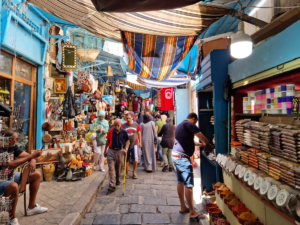Our increasingly urban world is bringing new challenges that, if not addressed, may hamper Human Rights for urban dwellers.
As disasters become increasingly urban, they risk leaving many without access to basic services such as housing, education, or healthcare, among others, and growing inequalities in cities can result in abuses of freedoms, exploitation and mistreatment, especially of the most vulnerable. A city that cannot safeguard human rights is neither sustainable nor resilient.
Local governments and city actors are well positioned to ensure that Human Rights are fulfilled for everyone, regardless of their status, and despite the shocks and stresses that a city may face. UN-Habitat is supporting cities to ensure these rights while building more sustainable and resilient cities through its robust City Resilience Profiling Tool. As a modular tool, a series of enhancers have been developed to allow cities to zoom in on specific themes with the overall objective of raising awareness, initiating dialogue and taking action. The latest in this series is the Human Rights Enhancer, launched on Human Rights Day 2018.
The Human Rights Enhancer outlines a human rights-based approach to resilience that moves further from assessing the needs of beneficiaries towards empowering them and building the capacity of rights-holders in asserting their rights alongside the duty-bearers. When applied to urban resilience, the human rights-based approach adds value to urban planning by prioritising the interests of the most vulnerable. Only by addressing cities’ Human Rights challenges can the vision of inclusive, safe, resilient and sustainable cities become a reality.
Human Rights Day is celebrated every 10th December, and marks the anniversary of the adoption of the Universal Declaration of Human Rights by the United Nations General Assembly in 1948. In 2018, the global community will once again come together to mark the 70th anniversary of this Declaration, and remind us that its principles are as relevant today as ever.





